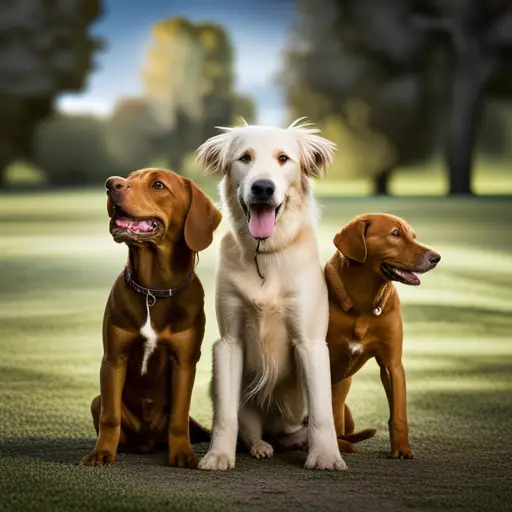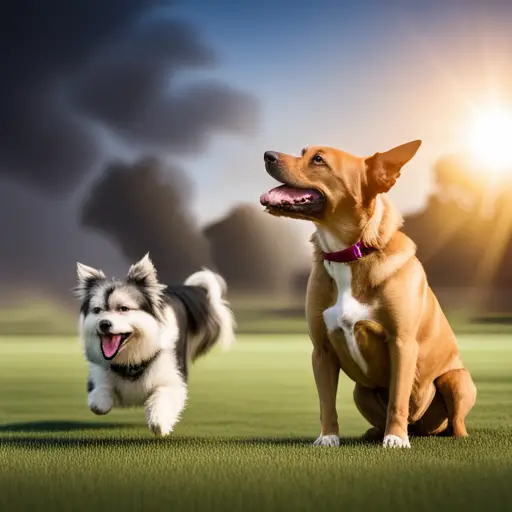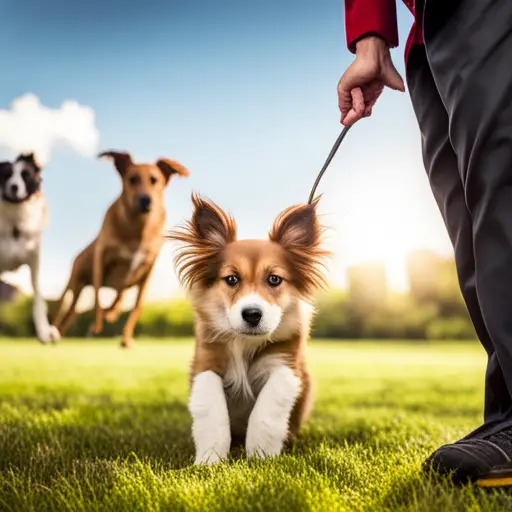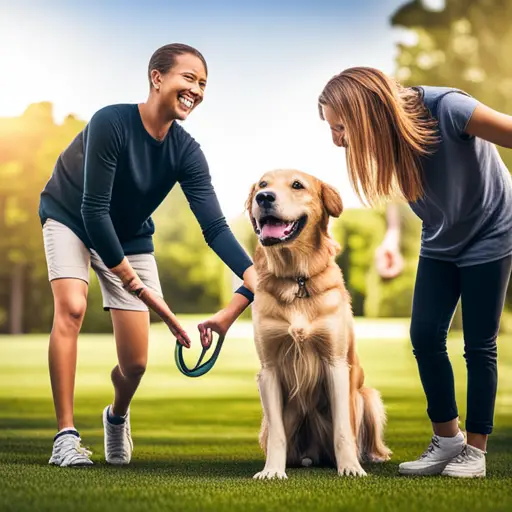As a dog owner, you want your furry friend to be well-behaved, happy, and confident. One of the most critical factors in achieving this is socialization. Socialization plays a crucial role in your dog’s training, and it is essential to understand its importance, when to begin, and how to go about it.
Imagine a scenario where your dog barks and growls at every person or animal they come across during your daily walks. This can be embarrassing, frustrating, and even dangerous if they decide to lunge or attack. However, with proper socialization, your dog can learn to behave calmly and confidently around other dogs and people.
In this article, we will explore the role of socialization in your dog’s training, the best practices for socializing your dog, and how to overcome common socialization challenges. By the end of this article, you will have the knowledge and tools to help your dog become a well-adjusted and well-behaved community member.
Key Takeaways
- Early socialization is crucial for a well-adjusted and confident dog, and delayed socialization can lead to potential risks such as fear, anxiety, and aggression toward new situations.
- Socialization exposes dogs to new people, places, and experiences, which helps them become well-adjusted and confident and learn appropriate behavior in different situations.
- Socialization is an ongoing process that should continue throughout your dog’s life and can be achieved through puppy socialization classes, group training classes, dog parks, and playdates with other dogs.
- Overcoming challenges such as fear and aggression requires patience and consistent training, and seeking the help of a professional trainer if necessary.
Understanding the Importance of Socialization

Understanding the significance of socialization is crucial to train your furry companion effectively. Socialization benefits your dog by exposing them to new people, places, and experiences, which helps them become well-adjusted and confident. Socialization also helps your dog learn appropriate behavior, such as meeting new dogs or being around children. Your dog may become fearful or aggressive in unfamiliar situations without proper socialization.
You can use various socialization techniques to help your dog become more comfortable in different environments. One technique is to gradually introduce your dog to new people, places, and experiences in a positive and controlled way. You can also enroll your dog in puppy socialization classes or take them to dog parks to interact with other dogs.
Remember that socialization is an ongoing process and should continue throughout your dog’s life. Now that you understand the importance of socialization let’s talk about when to begin socializing your dog.
When to Begin Socializing Your Dog

It’s never too early to start exposing your furry friend to different environments and people, as early socialization is crucial for a well-adjusted and confident dog. The benefits of early socialization include improved behavior, reduced aggression, and increased adaptability to new situations. Socialization helps your dog learn how to interact with other dogs, humans, and animals and can prevent behavioral issues in the future.
On the other hand, delayed socialization can lead to potential risks, such as fear, anxiety, and aggression toward new situations. Dogs that are not socialized may become fearful of new environments, people, and other animals and can become difficult to manage. Therefore, starting to socialize your dog as soon as possible is essential to ensure a healthy and happy future.
Transitioning into the subsequent section, the next step is learning how to socialize your dog properly, ensuring that your furry friend is comfortable and confident in all environments.
How to Socialize Your Dog

To ensure that your furry friend is comfortable and confident in all environments, you must start exposing them to different sights, sounds, smells, and experiences as early as possible. Here are some tips to help you socialize your dog:
- Enroll your dog in group training classes where they can interact with other dogs and learn important social skills. This is a great way to introduce your dog to new environments and experiences in a controlled setting.
- Take your dog to dog parks or arrange playdates with other dogs. This will help them learn how to interact with different types of animals and become more comfortable in social situations.
By socializing your dog, you’re not only helping them become more confident and well-behaved, but you’re also ensuring that they’ll be able to handle any situation that comes their way. However, socializing your dog can come with its own set of challenges. Let’s look at some common socialization challenges and how to overcome them.
Common Socialization Challenges

When socializing with your furry friend, you may encounter tough situations requiring patience and persistence. One of the most common challenges is dealing with fear. Dogs fear new people, places, and experiences, making socialization difficult. It’s important to introduce your dog to new things gradually and positively. Treats and praise reinforce good behavior and help your dog feel more comfortable in new situations.
Another challenge you may face is overcoming aggression. Some dogs are naturally more aggressive than others, so addressing this behavior early on is important. Aggressive behavior can be dangerous for your dog and those around them. If your dog shows signs of aggression, such as growling or biting, seek the help of a professional trainer. You can help your dog overcome aggressive behavior and become a well-socialized, happy pet with patience and consistent training. Now, let’s move on to some tips for successful socialization.
Tips for Successful Socialization

Successful socialization with your furry friend can be a rewarding and joyful experience for you and your dog. However, it can also be a challenging task requiring patience, dedication, and much effort. To help you navigate the socialization process more smoothly, here are some tips to keep in mind:
- Start early: The earlier you start socializing your dog, the better. Puppies have a critical socialization period between 3 and 14 weeks of age, during which they are more open to new experiences and less likely to develop fears or phobias.
- Expose your dog to different environments: It’s not enough to socialize your dog with people and other dogs. Exposing them to various environments, such as parks, streets, and stores, would be best to help them become more adaptable and confident.
- Socialize multiple dogs together: If you have more than one dog, it’s important to socialize them together as a pack. This will help them learn how to interact and communicate with each other positively.
- Avoid common socialization mistakes: Some common mistakes include forcing your dog into uncomfortable situations, overstimulating them with too much socialization too soon, and not providing enough positive reinforcement and rewards.
Following these tips can help your furry friend become a well-adjusted, happy, and social dog that loves interacting with people and other dogs. Remember, socialization is an ongoing process that requires patience, consistency, and a lot of love and attention.
Conclusion
Congratulations on taking the first step towards properly training your furry friend! Remember, the role of socialization in your dog’s training can’t be overstated.
Ensuring your dog is well-adjusted and comfortable in various situations is crucial. Start socializing your dog as early as possible, gradually exposing them to new people, animals, and environments.
Remember to remain patient and consistent, and always reward good behavior. Be aware of common socialization challenges, such as fear or aggression, and work with a professional if necessary.
Following these tips for successful socialization can help your dog become a well-rounded and happy family member.
So, go ahead and pat your pup, and start socializing today!
